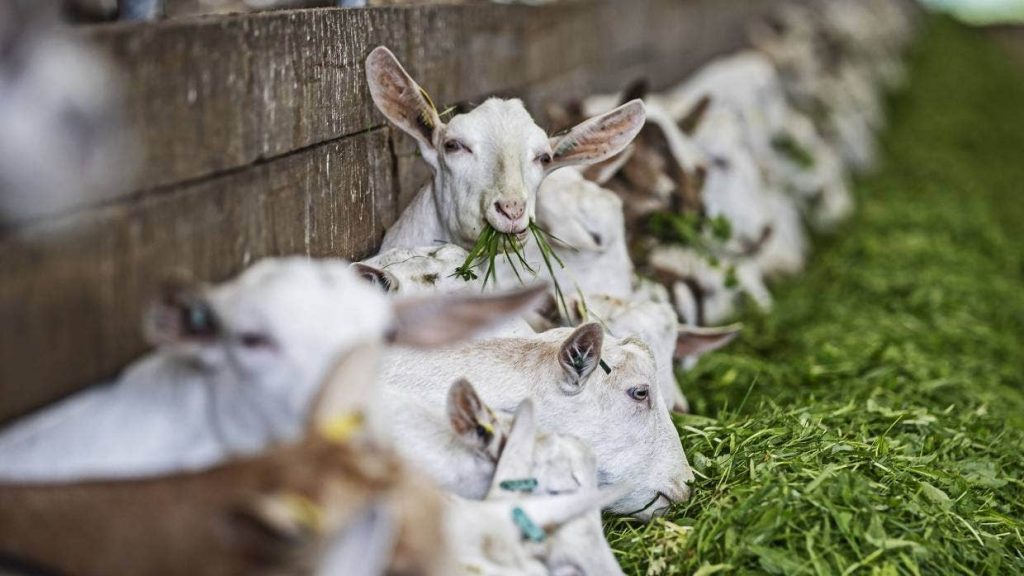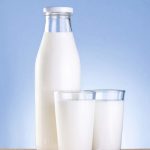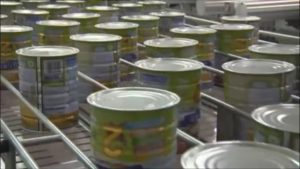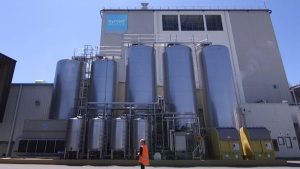
Goat milk company NIG Nutritionals chief executive, Chris MacBeth said updated regulations governing the manufacture of infant formula in China, which has increased trust in domestically produced products, along with a falling birth rate, have led to a drop in demand for imported infant formula.
Covid-19 had only accelerated changes that had been taking place over the last two-to-three years.
But MacBeth said the changes were an opportunity, because demand for ingredients for infant formula remained strong.
NIG Nutritionals must be more adaptable in it approach to China and support the country’s move to improve regulation of high value ingredients, he said.
Rather that commoditising its goat milk powder, NIG Nutritionals has launched a new brand, Caprinz and was leveraging New Zealand’s reputation as a quality producer of dairy products, to continue to sell goat milk powder into China at a premium.
Goat milk was sought after by consumers worldwide because it was easier to digest and was less allergenic, he said.
The goat milk market is still niche compared to traditional dairy that NIG Nutritionals could still extract premium value, he said.
“We are just changing the way we get the value. Instead of shipping a can, we are simplifying and sending ingredients. Its still valuable in a 25 kilogram bag.”
Infant formula was made from a number of ingredients, including micronutrients which were added at the end. NIG would produce a product that did “90 per cent of the work”, before shipping the ingredient to China where manufacturers would add the micronutrients, and sell a locally branded formula to consumers, MacBeth said.
For many years the demand for infant formula from New Zealand had been solid, as Chinese consumers abandoned local products after the melamine-in-milk scandal resulted in the deaths of infants.
Recent changes to the way infant formula products are regulated had rebuilt trust among Chinese consumers, he said.
“The other thing is birth rates in 2021 will be below 10 million, which will be the first time ever. So we have a shrinking market, changing buying behaviour and more trust in local products.”
Two years ago 60 per cent of milk powder in China was imported and 40 per cent was produced domestically. That had now been inverted, he said.
MacBeth said NIG was the first New Zealand goat milk company to reposition itself for the changing Chinese market and hoped to gain a “first mover” advantage.
In the last year and a half, the company has gone from being supplied by two farms to eight, effectively tripling its supply. More farms wanted to join but the company would not expand too rapidly, he said.
Farmer Hamish Noakes said he had been supplying NIG for nine years.
He milked 1000 goats in Karaka, near Pukekohe and had converted his traditional dairy farm to goats because they were a more viable option for the size of his farm.
Four goats were equivalent to one cow in terms of milk solids produced. Each goat produced about 3 to 3.5 litres of milk a day, he said.
Suppliers to the exporters were paid a contracted price which was renegotiated each year, he said.
The value of the milk had decreased during the Covid-19 pandemic but it was hoped that Caprinz might help to lift the price again, Noakes said.
MacBeth said NIG exported 300 tonnes of milk solids this financial year, but was forecast to increase to 1600 tonnes next year.
Caprinz would also be marketed to age groups beyond infants, as lactose intolerance was a condition that affected many people around the world, MacBeth said.

























